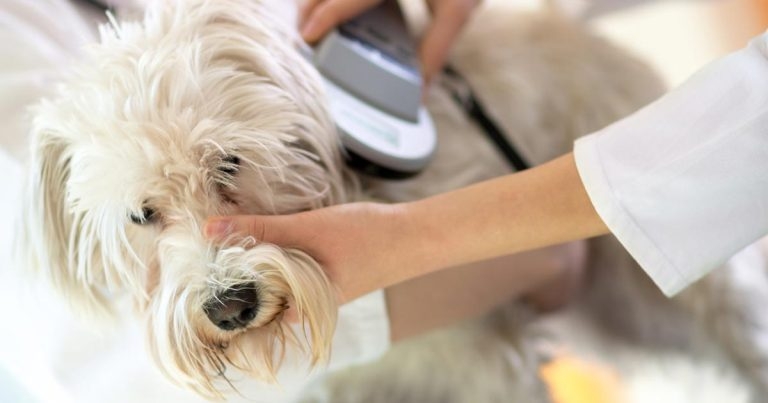21 May 2021
New approach strengthens vet position on microchip scanning in dogs ahead of euthanasia and follows public campaign known as ‘Tuk’s Law’.

Image © luckybusiness / Adobe Stock
A new guidance-led approach to microchip scanning of dogs ahead of euthanasia has this week been approved by the Defra.
The guidance follows a public campaign known as “Tuk’s Law”, which called for measures to ensure dogs were not euthanised without the microchip database first being checked for a “rescue back up” – a rehoming charity that could take responsibility for the animal.
In response, the RCVS and BVA, In consultation with Defra, agreed a way forward for key guidance for veterinary surgeons to be strengthened.
The new guidance, which underpins the RCVS Code of Professional Conduct that all UK-practising veterinary professionals must follow, will require veterinary surgeons to scan for a microchip in dogs prior to euthanasia where, in their professional judgement, destruction of the dog is not necessary on animal health or welfare grounds.
It will also support existing best practice in terms of discussing alternatives to euthanasia with clients, and give vets flexibility where, in their professional judgement, scanning is not appropriate; this might be if scanning would itself cause a welfare problem, or where a vulnerable client might be involved.
The RCVS standards committee recognised the difficulties experienced by veterinary surgeons in dealing with the current microchip database system, but felt that introducing these provisions into the guidance was a more proportionate response than the alternative of legislation with substantial fines.
Defra’s new Action Plan for Animal Welfare includes a review of existing database systems, with a view to introducing improvements.
George Eustice, secretary of state for environment, food and rural affairs, said: “We are a nation of animal lovers and the Government is committed to further strengthening our world-leading animal welfare standards.
“We have worked closely with the RCVS and BVA to develop this new guidance, which honours the Tuk’s law principles by requiring vets to scan the microchips of healthy dogs to help ensure they are not put down unnecessarily.”
RCVS president Mandisa Greene said: “We are grateful to Defra for helping find a workable solution to a challenging problem that will support animal welfare while underpinning the central role of a veterinary surgeon’s judgement, in what is often a very difficult moment for both the client and the vet.
“We are confident that our new guidance will significantly reduce any risk of unnecessary and unwanted euthanasia, while continuing to help veterinary surgeons help animals under their care to the best of their abilities.”
BVA senior vice-president Daniella Dos Santos said: “One of the most important jobs as a vet is having those difficult conversations with clients about euthanasia where we talk through all the options that are in the animal’s best interests.
“But where the vet doesn’t consider that euthanasia is necessary, the new guidance clearly sets out the steps we need to take. We support this constructive approach that addresses the campaigners’ concerns without undermining veterinary judgement.”